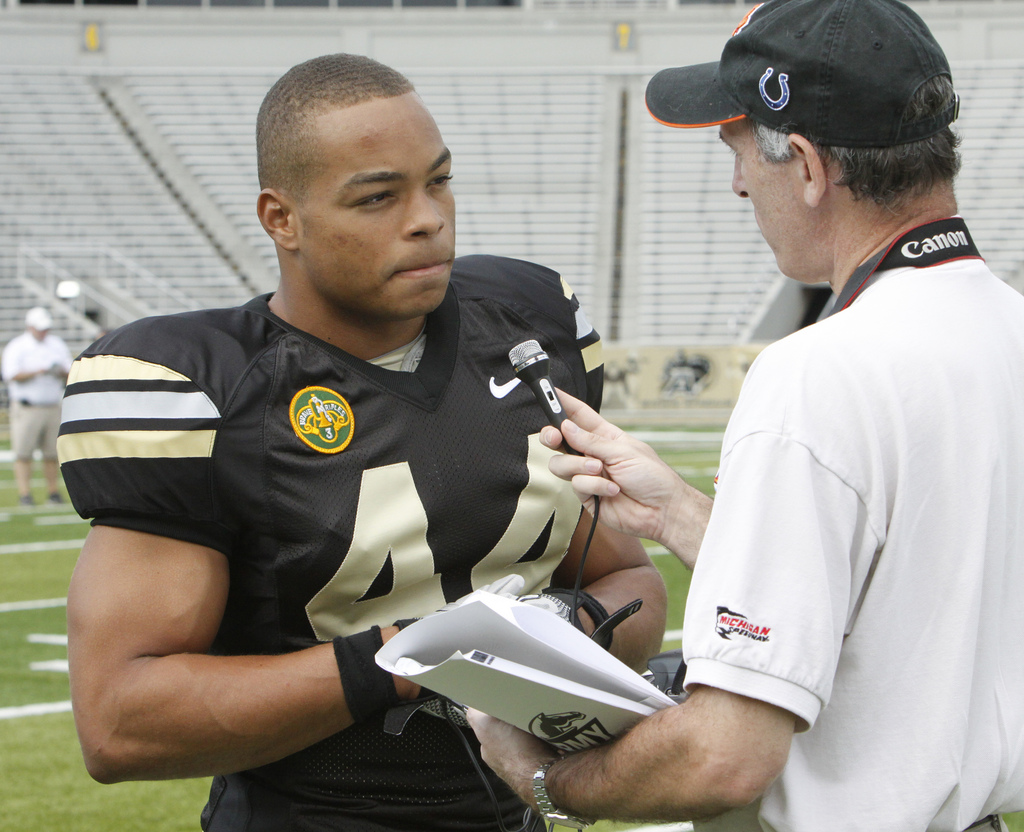Interviewing: How to get the most out of your source
One of the key building blocks of any reported story is the interview.
There are a lot of ways to do research for your piece, to learn things you didn’t know. But if you learn something that hardly anybody knew, chances are you’ve learned it in an interview. There’s nothing like talking to someone who knows what they’re talking about to disabuse you of your worldview on a particular subject!
You might interview someone for background information, to try to get a single quote, as a centerpiece of your narrative story or to turn the interview itself into the story, as a text Q&A or an audio or video piece. You might interview someone in person, on the phone or electronically, via email, text, instant message, Twitter or some platform not yet invented. Vulcan mind meld?
Here are some tips for interviewing that should work in a variety of situations.
Before the interview
If possible, have a plan.
- Know something about the person you’re interviewing and the subject you’re talking about. While it’s not always possible to know something about someone you’re interviewing—it might be a person in the crowd—it’s almost always possible to know about the subject at hand.
- Have a short list of questions ready in advance. You might not use them all. A good interviewer listens to what the interviewee says and can respond with questions that weren’t planned. But it’s good to have a plan to fall back on if you need it.
- Try to avoid writing out the questions and reading them. That feels awkward and won’t lead to good answers. Just give yourself a hint and word the question on the fly.
- Start with one or two easy, conversational questions. Nothing too taxing. You want to break the ice, though if time is limited you don’t want to spend too long on it. And if it’s a buttonhole interview—you’re grabbing someone as they’re walking by—you need to blurt out your best question first.
- Try to think of a couple of questions the subject probably hasn’t been asked before. Though you don’t want to go too far. A question that’s just bizarre and results in a confused look probably won’t help you very much.
- Be professional and be ready. Dress appropriately. If you’re using a recording device, make sure ahead of time that it’s ready to go, it works, the batteries are new, etc. If you use pen and notebook, have them ready to go so you’re not fumbling around with them. Have a pen that writes, and another one too, just in case.
During the interview
Be yourself.
- The person you’re talking to is a person. Don’t be intimidated, don’t try to impress them. You are doing a job, and that job is to get that person to say interesting things.
- Introduce yourself and who you’re working for. Be confident. Look the subject in the eye as much as you can. Don’t make the interviewee talk to the top of your head as you bury yourself in note-taking. Conduct yourself in a manner that shows you are interested in what the subject is saying. Maintain eye contact. Nod a lot in the affirmative if that feels appropriate. Signal non-verbally, “I hear you, I get what you’re saying, keep talking”—unless you don’t get it, in which case ask for clarification.
Listen.
- It’s easy to get caught up in the details of what you’re doing. Is my tape recorder working? What’s my next question? Try to actually listen to what the interviewee is saying and turn the interview into a conversation, though one where the interview subject does the vast majority of the talking. Respond to what your subject has just said, if appropriate.
- I’ve been lampooned for giving this advice, but it’s easier said that done, and there are a lot more people who conduct interviews than there are people who actually listen to what the person they’re interviewing is saying.
Some nuts and bolts
- If you’re taking notes, don’t try to capture every single thing the subject says. Identify as best you can what the best quotes are and get them right. If you’re taping the interview, it’s sometimes wise to also take notes, at least to give yourself clues about where the best quotes are in the interview, so you can skip to them when you transcribe. But you don’t want to be fumbling with too many things, so if you’re confident in your recorder and it’s not convenient to take notes, then don’t.
-
It’s a personal choice, but I always like to tape interviews. I got my start in radio, and I noticed how often the newspaper versions of the stories I covered got quotes—say from a news conference or a political rally—a little bit wrong. That’s because I’d taped the quote for the radio, and the newspaper reporter had written it down. Unless you’re good at shorthand, it’s almost impossible to get quotes right word-for-word.
- If possible and you don’t already have it, get a phone number or email address at the end of the interview and ask if you can call/write with any followup questions or to clarify something. It’s good to have the phone number for another time even if you don’t need it this time. This won’t be possible with most buttonhole interviews.
Questions
- Avoid yes/no questions. They sometimes work as ice-breakers. They can work as a lead-in to another question, as in: “Was that the first time that happened to you? (Yes/No) Tell me about the first time/How did it feel?” Or sometimes you just need to know, for background, whether the answer to some specific question is yes or no. But if you ask a yes/no question, you should expect a one-word answer.
- It’s better to ask questions that lead the person to start talking. “Tell me about …” “What’s it like …” “How did/does it feel …” “How do you plan to …”
- Ask dumb questions. What I mean is, it’s OK to ask a question you know the answer to. Sometimes you need the interview subject to say it. You don’t want to speak for them and who knows, you might have something wrong.
- Asking dumb questions might not work as well if you’re going to run the interview as a Q&A or an audio/video piece. But even in that situation, remember that the subject is the star of the interview. It’s not important for you to show off how much you know about the subject at hand. It’s important for you to get the interviewee to say interesting things about it. If you have ask a question you know the answer to, it’s OK.
- Don’t be afraid to ask a question again. If the subject didn’t answer the question you asked, go back at him. Use your judgment to decide if you should just ask it again, re-word it or circle back around to it later.
- If you have time, you might want to finish with a catch-all wrap-up question. “Anything else you want to say?” “What question should I have asked but I didn’t?” That sort of thing. It often won’t be fruitful with subjects who are interviewed a lot, but you might get something fun out of it that no one could have expected.
The conversation
- Don’t ramble. Keep your questions clear and brief. Get to your point and ask it. Once you’ve asked your question, stop talking.
- And while you’re at it not rambling, don’t let the subject ramble either. If she’s yammering away and you’re not getting anything, especially if your time is limited, gently interrupt whenever you can—jumping in with an observation of your own sometimes works—and steer the conversation back where you want it to go. Stay in control.
- Try silence. Especially if an answer seems less than complete, resist the temptation to avoid silence by asking the next question. If you can handle a few moments of awkwardness, there’s a good chance the subject will feel uncomfortable enough to start talking again, and you’ll get more than you otherwise would have.
After the interview
If possible, review your notes and/or your recording right away. Make sure your recorder worked, and if not either try to re-do the interview or get as many quotes as you can remember, as accurately as possible, down on paper. Clean up your notes on the quotes you think you’re going to use. Mark the quotes you think you’re most likely to use. Do all this while the conversation is still fresh in your mind.
* * *
Photos: West Point Public Affairs (Army) and Keith Allison (Wieters). Both Flickr Creative Commons.
This post originated as an email sent to Bleacher Report writers in March 2011.
-
Randy Chambers



